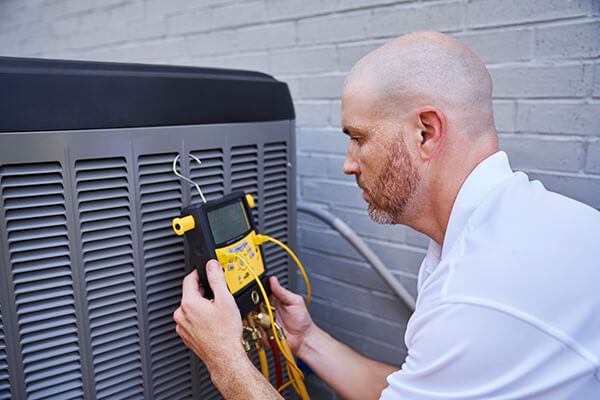Las Vegas, renowned for its scorching temperatures and vibrant lifestyle, places a critical emphasis on efficient HVAC systems for both comfort and health. This comprehensive article will discuss essential aspects of HVAC repair in Las Vegas, covering historical trends, preventative maintenance tips, and best practices for ensuring your system is efficient and reliable.
Understanding Las Vegas's Unique HVAC Needs
Located in the Mojave Desert, Las Vegas experiences extremely high temperatures, particularly in the summer months when daytime temperatures can soar above 100 degrees Fahrenheit. The city also faces less than five inches of rain annually, which places unique demands on HVAC systems. Dust and debris, common in desert environments, can accumulate in systems and reduce efficiency. Thus, understanding these local challenges is key to addressing HVAC maintenance and repair needs effectively.
Historical Trends in Las Vegas HVAC Repair
Over the decades, HVAC systems and repair strategies in Las Vegas have evolved significantly. In the early 2000s, many homes and businesses used single-stage air conditioners which were not very energy efficient. As technology advanced, more residents began to adopt two-stage and variable-speed models that offer better energy efficiency and comfort.
The introduction of smart thermostats and automated systems has also been a game changer. These technologies allow for better temperature management and can significantly reduce energy usage by adapting to the specific needs of the space without manual intervention.

Common HVAC Issues in Las Vegas
- Poor Airflow: A common issue in many Las Vegas homes, poor airflow can be due to blocked air filters, leaky ductwork, or inefficient motors. It's essential to regularly check and replace air filters and ensure ducts are sealed and insulated properly.
- AC Overheating: During the hot Las Vegas summers, air conditioners work overtime. Without proper maintenance, this can lead to system overheating. Ensuring that the system has clear ventilation and is serviced regularly can help prevent these issues.
- Thermostat Malfunctions: Faulty thermostats can lead to inefficient operation and discomfort in extreme temperatures. Upgrading to a smart thermostat can provide more precise control and reduce unnecessary strain on the HVAC system.
- Refrigerant Leaks: Refrigerant levels need to be adequate for an AC to produce cool air. Leaks can cause the system to underperform or halt altogether. Periodic checks by professionals can help identify and rectify such issues promptly.
Preventative Maintenance Tips
To avoid frequent repairs and extend the life of
HVAC repair Las Vegas systems, preventative maintenance is crucial. Here are some tips tailored for Las Vegas residents:
- Regular Filter Replacement: Replace air filters every one to three months, especially during high usage months. This can prevent dust and debris common in desert areas from harming your system.
- Scheduled Professional Inspections: Have your HVAC system inspected by a professional at least twice a year. These inspections can catch issues like faulty wiring, leaks, or deteriorating parts before they lead to larger problems.
- Duct Cleaning and Sealing: Given the sandy environment, ensuring that your ducts are clean is vital. Sealing any leaks can also improve system efficiency and reduce energy costs.
- Upgrading Insulation: Enhanced insulation helps maintain internal temperatures, reducing the workload on HVAC systems and lowering energy consumption.
Best Practices for Handling Repairs
When repairs are necessary, following best practices can ensure that they are handled efficiently and effectively:
- Choosing the Right Professionals: Always opt for licensed and experienced HVAC technicians. This guarantees that repairs are done correctly and safely.
- Understanding Repair or Replace Decisions: Sometimes, especially with older systems, replacing an inefficient unit with a new, energy-efficient model is more economical than paying for frequent repairs.
- Keeping Records: Maintain a log of all maintenance and repairs. This history can help technicians diagnose issues faster and also comes in handy when evaluating the performance and lifecycle of your system.
- Energy Efficiency Considerations: When repairs are necessary, consider upgrades that enhance energy efficiency. This might include installing ENERGY STAR rated units or additional features like zoned heating and cooling systems.
The Future of HVAC in Las Vegas
Looking forward, the trend in Las Vegas is shifting towards more sustainable and energy-efficient systems. Innovations such as geothermal heating and cooling, which utilize the stable temperatures underground to regulate indoor climate, are gaining traction. Moreover, as the city grows, there is an increasing focus on building and zoning regulations that promote energy efficiency.
Conclusion
Las Vegas's extreme climate makes HVAC upkeep not just a matter of comfort, but of survival. By understanding the specific needs of the region, homeowners and businesses can better prepare and maintain their HVAC systems. Regular maintenance, timely repairs, and considering long-term energy-efficient solutions will not only save money but also enhance the livability of spaces in one of the world’s most vibrant cities. As Las Vegas continues to grow and evolve, staying informed and prepared is the best strategy to ensure your HVAC systems are effective, efficient, and resilient.